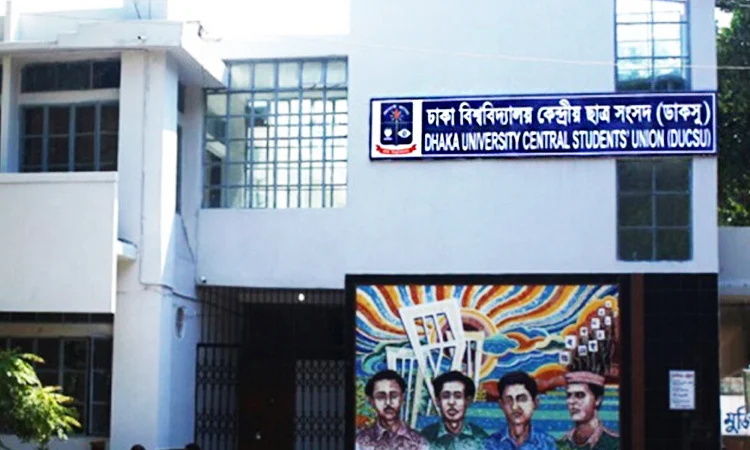As the Dhaka University Central Students’ Union (Ducsu) elections approach, doubts have emerged among general students regarding whether the promises made in manifestos by panels and candidates can be effectively implemented.
Many students are sceptical about the feasibility of the pledges made, with some believing that while such promises are often made, their actual implementation is not as simple as it may seem.
Syed Fahim, a resident student of Shahid Sergeant Zahurul Haque Hall, said, “Ahead of the election, everyone is presenting their manifestos, addressing various student issues, but no one can say how much of it will actually be implemented.”
Israk Aman, a resident student of Bijoy Ekattor Hall, remarked, “The main issue in the 2019 Ducsu election manifesto was solving the accommodation crisis. However, none of the candidates will be able to deliver on that promise because they lacked the necessary effort.”
He claimed that once accommodation is fully guaranteed, “political parties that have strong connections with certain student groups will no longer be able to forcefully recruit students into their programmes.”
As the election draws near, candidates have presented various pledges in their manifestos, with the central focus being the guarantee of 100% accommodation for students and ensuring the safety of female students on campus.
Other promises include reducing tuition fees, improving library and research facilities, creating a safer campus environment, and addressing long-standing student concerns.
Sheikh Tanvir Bari Hamim, a general secretary (GS) candidate supported by Chhatra Dal, told TIMES of Bangladesh, “We are focusing on solving the student accommodation issue and ensuring the safety of female students on campus as part of our manifesto.”
“If the students elect us, we will make every effort to solve these problems completely,” he added.
The candidates from the ‘Independent Student Unity’ panel expressed their commitment to resolving the accommodation crisis and improving student safety on campus.
Umama Fatema, vice president candidate from this panel, told TIMES of Bangladesh, “We are placing the highest priority on resolving the accommodation crisis and renovating academic buildings.”
She said, “These are the issues students face most when they come to the university, and we want to find permanent solutions.”
Sadiq Kaim, a VP candidate backed by the Jamaat-e-Islami-supported student panel, said, “Despite Dhaka University completing 100 years, 100% accommodation is still not guaranteed. If elected, we will ensure seats for every student step by step.”
He proposed involving private institutions and alumni in solving the accommodation problem.
Abdul Kader, a VP candidate supported by the Bangladesh Ganatantrik Chhatra Sangsad panel, declared, “Our slogan will be ‘One Student, One Seat.’ We will ensure 100% accommodation and permanently end the system of communal and guest rooms.”
Jabir Ahmed Jubel, assistant general secretary candidate from the ‘Protirodh Parishad’ panel, mentioned that their manifesto focuses on tackling the accommodation crisis, providing healthy food, resolving transportation shortages, and digitising the library system.
“We have already worked voluntarily on these issues, and if elected, we will apply more pressure on the administration to resolve them effectively. If there is still no solution, we will try to bring about change through student movements and protests,” he added.
Despite these promises, many students are viewing the candidates’ commitments as mere “vote-winning strategies.”
On 30 July, the Executive Committee of the National Economic Council approved a Tk2,840 crore project for the development of Dhaka University’s infrastructure.
This project will involve constructing six academic buildings, four residential halls for 2,600 male students, and five residential halls for 5,100 female students.
On Saturday, during a discussion organised on Dhaka University’s Black Day, Vice-Chancellor Professor Niaz Ahmed Khan said, “Organising the DUCSU election is challenging in every respect. However, student organisations have behaved satisfactorily so far.”
The voting for the Ducsu and hall union elections will be held on 9 September across eight polling centres on the university campus.
As the election date approaches, students remain hopeful yet sceptical, and only time will tell if the promises made by the candidates can truly become a reality.


